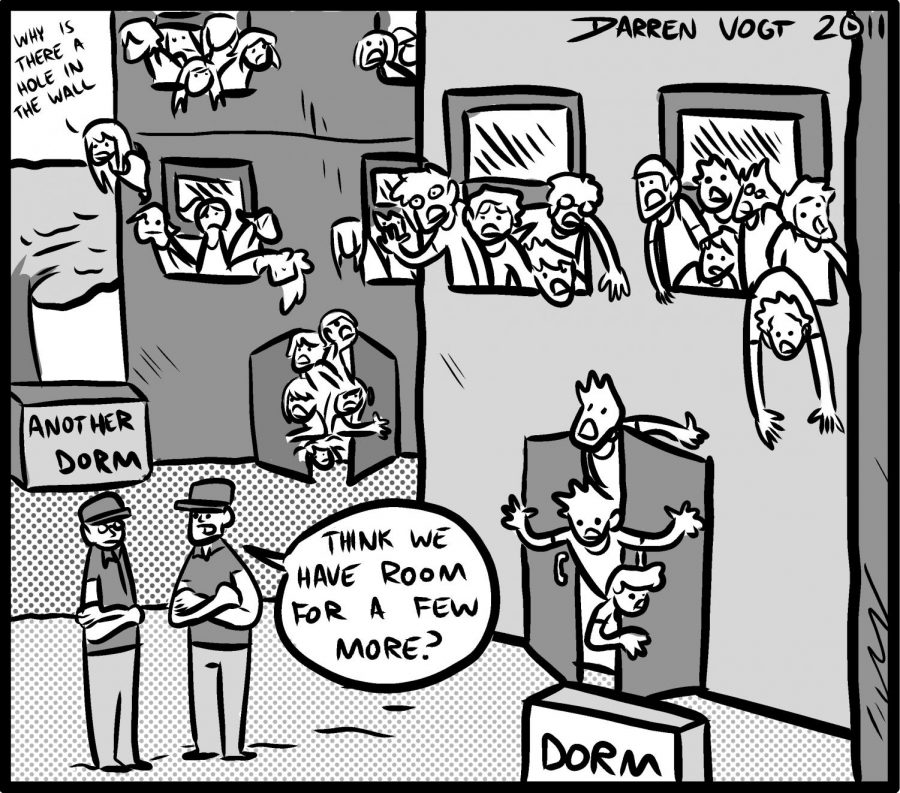EDITORIAL: Two-year dorm policy causing overcrowding, not helping retention rates
September 6, 2011
The Issue: WKU requires students to live in dorms for their first two years on campus in an effort to keep student retention rates high. Keeping students in dorms for two years may prevent dropping out due to non-academic reasons, but this is causing dorm overcrowding. WKU has no building plans for new dorms — only some limited apartment-style living.
OUR STANCE: If WKU had to form a retention task force this year, then it’s obvious that parts of the current retention plan — namely the two-year dorm policy — aren’t working and should be eradicated.
When students enter college, most have that euphoric feeling of freedom. Whether it’s freedom from parents’ curfews or freedom from high school rules, they all feel it.
We understand requiring freshman to live on campus is a logical concept for freshmen. It’s their first time away from home, and living on campus can ease the burden of finding a place to live, learning how to pay rent, and taking on adult responsibilities.
But shouldn’t students — especially sophomores — at least have the option of living on or off campus?
Although freshmen and sophomores are younger and newer to campus, they’re still responsible adults who shouldn’t have their hands held for the first two years of college. And with the current policy, dorms are becoming overcrowded to the point that some students have to temporarily shack with their resident assistants.
To alleviate the overcrowding, WKU has allowed certain students to move off campus for their sophomore year. Most students are thrilled to be one of the lucky recipients of the “exception” email, but it’s ironically sent mid-summer after most apartments and houses for rent have already been leased to upperclassmen.
There are better ways to boost retention at WKU than making students live on campus, such as accepting students with higher standardized testing scores and high school GPAs. If someone doesn’t belong at college in the first place, forcing them to live on campus won’t do anything but cost WKU money when that student drops out.
In President Gary Ransdell’s Convocation speech, he said that last year, the cost to educate first-year students who did not return for their sophomore year at WKU was $8.5 million. Ransdell added that more than 1,000 students are lost from each freshman class.
A 1 percent increase in retention would add about $1 million in revenue to the base budget, Ransdell said.
But that’s all about retaining students from freshman to sophomore year. Give the ones who make it back for year two some freedom. Let them live where they please.
This editorial represents the majority opinion of the Herald’s 10-member editorial board.
















